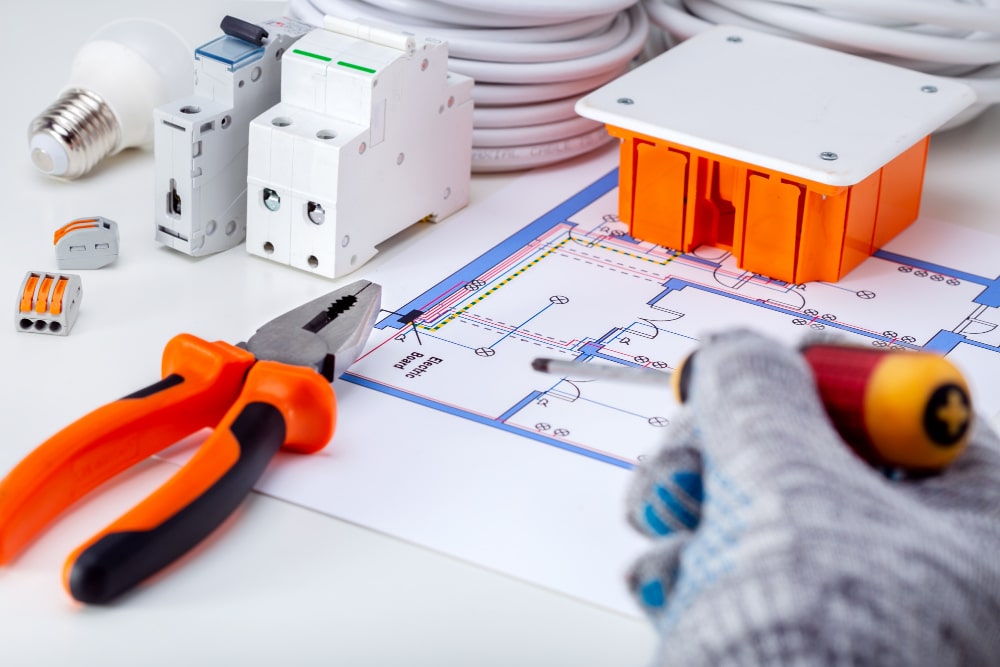So you’ve taken on the gargantuan task of remodeling. The good news is that this sort of project can be a rewarding experience for any homeowner. The bad news?

Safety Tips – Electricity
Any sort of remodeling project has numerous aspects that you need to be aware of that could potentially be hazardous or even deadly. Not only could you be opening up a wall and entering into an entirely foreign world full of bugs, mold, and a host of other critters, you might expose electrical or plumbing problems as well.
Home renovation is an art. As such, you need to proceed with a creative mind and with the notion of caution as well, especially when working around electricity.
The following will outline a few safety tips that when followed will keep you safe around electricity during your home remodeling work, even if you’re hiding cords for your new TV.
Faulty Wiring
When a home is built, the electricians in charge of installing the electrical work must abide by the current code in place for your state.
These codes are known to change over the years and regard numerous elements such as voltage requirements, wire gauge, protective elements, and even the type of materials used in the electrical framework itself.
If you’ve purchased an older home, especially one that pre-dates the 1980’s, you might be running into a serious problem with faulty or poor wiring. If this is the case, you’ll want to call an electrician to handle the issues.
Electrical contractors must obtain an electrical contractor’s license in your state. This requirement means that they have been trained, passed intensive testing, and are licensed to handle electrical work safely. They’re even required to maintain licensing renewal.
Any time you come across faulty wiring or wiring that appears to be out of date, stay safe and call your local electrical contractor immediately.
Exterior Electrical Work
The inside of your home isn’t the only place where electrical work is present. Practically all homes have exterior electrical work, and most importantly groundwork. This groundwork needs to be marked, especially when you’re digging around in the yard.
Maybe you’re doing a little landscaping for your home remodel, or perhaps you’re going the extra mile and digging to install a pool. If this is the case and you intend to dig anywhere on your property. You’ll need to know where the underground electrical lines are before striking it with a shovel.
Once you know the location of these lines, which also include gas, fiber optics, and plumbing lines, you’ll be able to safely dig on your property without risking your safety.
Electricity and Water
Let’s say you’re doing some moderate remodeling work that requires you to drill holes or remove walls. Believe it or not, it’s actually quite common for a homeowner to puncture a water line or damage pipes when drilling or removing walls.
In the event that this happens, you have to remember that the electrical work present in your home does not react well with water. And, electrical lines are often in close proximity to plumbing lines.
If you’ve found significant leakage or have damaged a water line, again, this is the time when you’ll want to call an electrician, and obviously a plumber, in order to fix the issue without compromising your safety.
Remember, even when you have the power turned completely off, electrical lines can still hold power, and a significant amount.
Renovations and remodels are both exciting projects to embark on, especially for a first-time homeowner. But you have to remember that electricity is dangerous, and it only takes a small amount of voltage on a solid current to harm or otherwise kill a human being.
